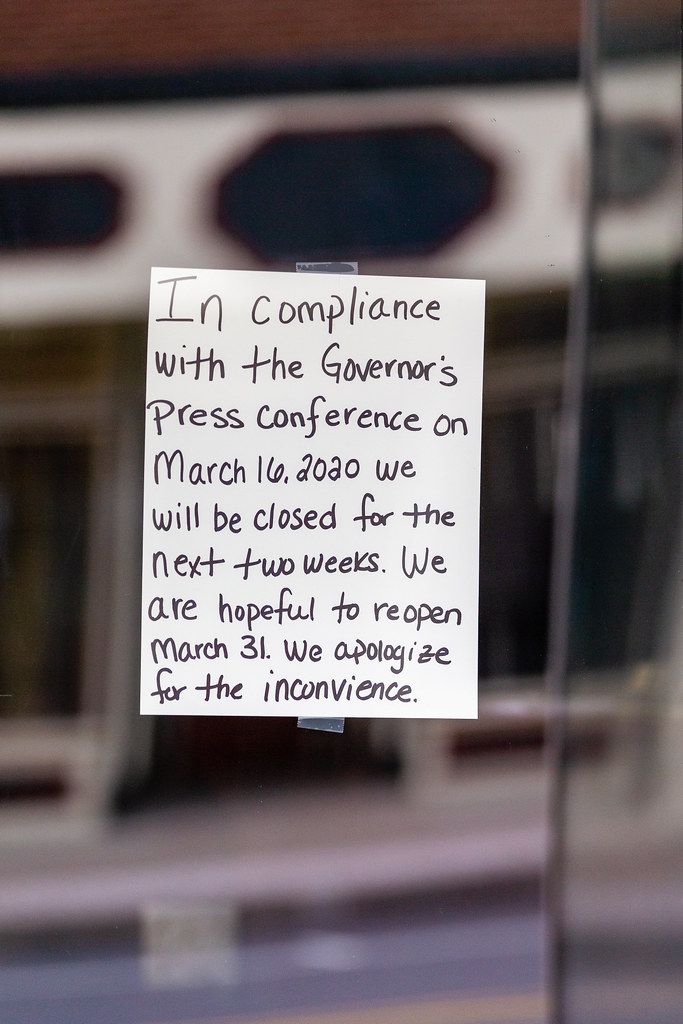
Coronavirus shutdown exposes need for regulatory takings legislation in Montana
Keeping Montanan small businesses afloat during the coronavirus shutdown was one of the most important actions taken by our federal government. The relief package kept many people working and may prevent, in the long term, the closure of thousands of businesses.
Some have characterized the relief for business owners as “bailouts.” They’re not. A bailout is a government handout to businesses that lost money due to their own mismanagement. The government bailed out financial institutions during the 2008 financial crisis.
That’s not what’s happening today. The businesses receiving relief are not in financial trouble due to any fault of their own. They’re in financial trouble because government has forced them to shut down.
The government’s relief package is a recognition that those affected businesses deserve compensation because they were shut down and deprived the use of their private property by state regulation for the public good. The technical term for this is “regulatory taking”.
Property rights are hard wired into our Constitutions. The Fifth Amendment of the United States Constitution states no person can be “deprived of life, liberty, or property without due process.” In other words, state actions that restrict our civil liberties or use of our property must follow fair legal procedures.
The Fifth Amendment also states that “private property (cannot) be taken for public use, without just compensation,” setting up the process we refer to as eminent domain. The Montana Constitution takes this concept a step further, stating “Private property shall not be taken or damaged for public use…” (Emphasis added.)
The concepts that underly these Constitutional protections are simple. When private property is used for a public purpose, the public (through the local, state, or federal government) should compensate the private property owner for the use of that property. In the absence of compensation, that private property owner would be forced to bear the cost of the public purpose.
In the case of the coronavirus shutdown, every Montanan has conceivably received a benefit from the government edicts that shut down thousands of businesses. Those regulations flattened the curve, delayed infection for most of us, and prevented our health systems from being overwhelmed.
Those regulations have also done immense damage to thousands of businesses. The public that benefited now has an obligation to ensure that those businesses are properly compensated for the damage done to them. The federal relief package was designed to do just that.
Unfortunately, the compensation being paid for regulatory takings related to the coronavirus shutdown is the exception, rather than the rule. Regulatory takings are occurring at an increasing rate as the scope of government expands, and property owners are routinely forced to bear the costs of the public good.
One lesson we should learn from this shutdown is that compensation for regulatory takings is the right thing to do—not just during a crisis, but in every case where state regulation limits the use of property in order to give a benefit to the public.
The Montana Property Rights Protection Act is legislation designed to do just that. Modeled after regulatory takings laws implemented successfully in other states, the MPRPA would set up a legal process whereby owners would be compensated when their property is damaged by government regulations, but not outright taken through eminent domain.
The coronavirus shutdown is an extreme example of the economic impacts that result from government regulation, but it’s illustrative of the fundamental fact that the cost of regulation is ultimately borne by property owners. We’ll be introducing the MPRPA in the next legislative session to relieve that burden and ensure that costs of regulation are fairly shared by all who benefit.